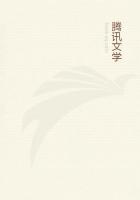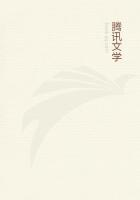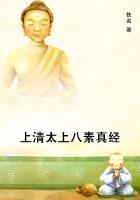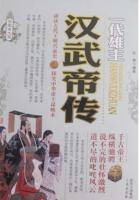The traveller drew rein, amazed at the trim and features of Don Quixote, who rode without his helmet, which Sancho carried like a valise in front of Dapple's pack-saddle; and if the man in green examined Don Quixote closely, still more closely did Don Quixote examine the man in green, who struck him as being a man of intelligence. In appearance he was about fifty years of age, with but few grey hairs, an aquiline cast of features, and an expression between grave and gay; and his dress and accoutrements showed him to be a man of good condition. What he in green thought of Don Quixote of La Mancha was that a man of that sort and shape he had never yet seen; he marvelled at the length of his hair, his lofty stature, the lankness and sallowness of his countenance, his armour, his bearing and his gravity- a figure and picture such as had not been seen in those regions for many a long day.
Don Quixote saw very plainly the attention with which the traveller was regarding him, and read his curiosity in his astonishment; and courteous as he was and ready to please everybody, before the other could ask him any question he anticipated him by saying, "The appearance I present to your worship being so strange and so out of the common, I should not be surprised if it filled you with wonder; but you will cease to wonder when I tell you, as I do, that I am one of those knights who, as people say, go seeking adventures. I have left my home, I have mortgaged my estate, I have given up my comforts, and committed myself to the arms of Fortune, to bear me whithersoever she may please. My desire was to bring to life again knight-errantry, now dead, and for some time past, stumbling here, falling there, now coming down headlong, now raising myself up again, I have carried out a great portion of my design, succouring widows, protecting maidens, and giving aid to wives, orphans, and minors, the proper and natural duty of knights-errant; and, therefore, because of my many valiant and Christian achievements, I have been already found worthy to make my way in print to well-nigh all, or most, of the nations of the earth. Thirty thousand volumes of my history have been printed, and it is on the high-road to be printed thirty thousand thousands of times, if heaven does not put a stop to it. In short, to sum up all in a few words, or in a single one, I may tell you I am Don Quixote of La Mancha, otherwise called 'The Knight of the Rueful Countenance;' for though self-praise is degrading, I must perforce sound my own sometimes, that is to say, when there is no one at hand to do it for me. So that, gentle sir, neither this horse, nor this lance, nor this shield, nor this squire, nor all these arms put together, nor the sallowness of my countenance, nor my gaunt leanness, will henceforth astonish you, now that you know who I am and what profession I follow."
With these words Don Quixote held his peace, and, from the time he took to answer, the man in green seemed to be at a loss for a reply; after a long pause, however, he said to him, "You were right when you saw curiosity in my amazement, sir knight; but you have not succeeded in removing the astonishment I feel at seeing you; for although you say, senor, that knowing who you are ought to remove it, it has not done so; on the contrary, now that I know, I am left more amazed and astonished than before. What! is it possible that there are knights-errant in the world in these days, and histories of real chivalry printed? I cannot realise the fact that there can be anyone on earth now-a-days who aids widows, or protects maidens, or defends wives, or succours orphans; nor should I believe it had I not seen it in your worship with my own eyes. Blessed be heaven! for by means of this history of your noble and genuine chivalrous deeds, which you say has been printed, the countless stories of fictitious knights-errant with which the world is filled, so much to the injury of morality and the prejudice and discredit of good histories, will have been driven into oblivion."
"There is a good deal to be said on that point," said Don Quixote, "as to whether the histories of the knights-errant are fiction or not."
"Why, is there anyone who doubts that those histories are false?" said the man in green.
"I doubt it," said Don Quixote, "but never mind that just now; if our journey lasts long enough, I trust in God I shall show your worship that you do wrong in going with the stream of those who regard it as a matter of certainty that they are not true."

